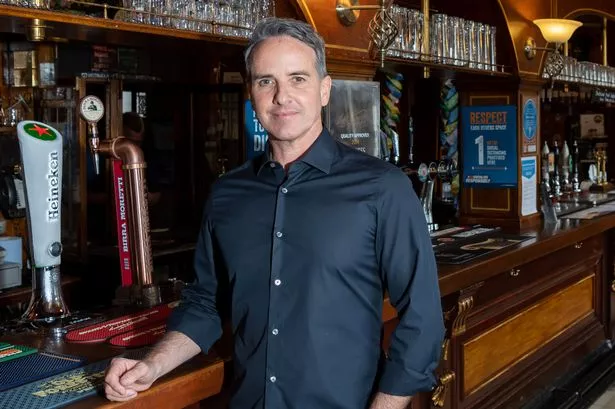Sacha Lord has warned there could be further hospitality closures due to increases in National Insurance contributions and changes to business rates support.
Although only a few days into the New Year, Manchester's Night Time Economy Advisor expressed his concern following a 'raft' of closures already in 2025 - and has said the 'writings already on the wall for many'.
Yesterday, two Greater Manchester businesses announced their sudden closures. Popular Bury eatery Crowded House confirmed they will close at the end of January due to rising utility bills and insurance costs, while award-winning Altrincham deli, Off the Wheaten Track, announced it's shock closure citing uncertainty over increasing costs.
Echoing some of the concern of small business owners, Sacha Lord wrote on X this morning: "It’s only 7th Jan and I’m already seeing a raft of hospitality closures this morning.
"I’m sadly predicting we will see more at the start of this year, than we did during Covid. The unexpected extra tax burden of an increase in NI and Business Rates increase, will be the straw that broke the camels back.
" Many Govt meeting are taking place this month, but sadly the writings already on the wall for many."
His post was met with a number of comments, with The Scottish Hospitality Group writing: "It is a trend which unfortunately we will see more of across the year.

"Many decided to take Christmas & NY and then call time. The UK budget have been a nail in the coffin that the sector didn’t need during its slow recovery."
Another X user added: "It will get worse, the rise in cost of eating out added to less disposable income is crippling hospitality, it already was a tough game for most now it's nigh impossible our gov are crippling the industry."
And a third wrote: "As someone involved in hospitality, I despair when I see this."
In October, Rachel Reeves delivered her first Budget following Labour's election victory earlier that summer. The chancellor laid out how she would raise £40 billion a year in extra taxes during her speech to MPs in the House of Commons and said the measures were necessary to address the “black hole” in the public finances left by the Tories.
Reeves maintained her promise not to hike taxes for working people, but confirmed plans to hike employers’ national insurance contributions up to 15 per cent from April 2025, as well as a 6.7 per cent hike to the National Living Wage and increase to minimum wage for 18 to 20 year olds.

In the run up to the Budget, there had also been calls for an extension to business rates support, with industry body, UKHospitality warning that the sector faced an additional rates bill of £914m if the relief ended, as planned, on March 31, 2025. The Chancellor confirmed the support would be extended, but at a lower rate.
Currently, businesses receive a 75 per cent discount on business rates, but from April next year, that discount will be reduced to 40 per cent.
Moves such as this were met by some anger and frustration by the hospitality industry following the announcement, with one of its major trade bodies calling it the ‘latest blow' for the sector.
While she also confirmed the price of a pint would drop, a permanently lower level of business rates for the sector from 2026/2027, and increase with the Employment Allowance, many said it will be ‘incredibly difficult’ for some hospitality businesses to survive.
Kate Nicholls, Chief Executive of UKHospitality, said at the time: “This Budget is the latest blow for hospitality businesses. Rising taxes, increasing costs and fragile consumer confidence risk bringing growth to a grinding halt.

“In the short-term, the tsunami of employment costs coming in April will ultimately do more to hamper growth than incentivise it. Increases to employer NICs and wages will make it harder for businesses to support employment and invest in their businesses.
"Avoiding the business rates cliff-edge next April was critical and it was important that some relief has been extended. However, the reduced level of 40 per cent is another cost that businesses have to deal with. For those small- and medium-sized operators, their rates bills will still go up in April.
"All of this means that 2025 will be a painful for hospitality, with a increased annual tax bill of £3bn for the sector."
The UK's hospitality industry finds itself in an increasingly precarious position. Despite a busy festive period, which is when many pubs, restaurants and bars see an uptick in trade, they've faced a number of challenges over the last few years.
Set against a backdrop of an ailing high street and cost-of-living crisis which continues to bite, staff shortages post Brexit and a huge increase in energy and electricity costs, many businesses are finding the current climate unviable, with the incoming tax hikes and wage increases a serious cause for concern.
A government spokesperson said: "A thriving hospitality sector plays a crucial role in growing the economy and features at the heart of our communities.
“We have ensured that more than half of UK employers will either see a cut or no change in their National Insurance bill from April, and we are providing 40% business rates relief ahead of introducing a permanent, new lower business rate from 2026. We’re also tackling anti-social behaviour and addressing empty properties to support entrepreneurship.”


























